What Is Estate Planning and Why Do You Need It?
Estate planning is about more than just writing a will—it’s about ensuring that your assets, legacy, and loved ones are protected when you’re no longer around. As we step into 2025, the complexity of laws surrounding estates, taxes, and asset distribution makes it more important than ever to plan effectively.
In my experience, clients often delay estate planning because it seems overwhelming or unnecessary if they don’t consider themselves “wealthy.” However, I’ve found that estate planning benefits individuals and families at all income levels by providing clarity, reducing taxes, and minimizing conflict.
By the end of this article, you’ll understand:
- The key components of an estate plan.
- Why it’s essential, even if you don’t consider yourself wealthy.
- How to get started with estate planning in 2025.
Why Listen to Me?
As a CERTIFIED FINANCIAL PLANNER™ professional, I’ve worked with families to navigate the complexities of estate planning. In my experience, proactive planning not only protects your loved ones but also ensures your legacy reflects your values and priorities.
👉 How would it feel to know exactly when you can retire and how much you can spend without running out of money? Let’s talk. In a complimentary call, I’ll walk you through your numbers and show you strategies that could help you retire with more confidence and less stress. Schedule Your Call
Key Takeaways
- Estate planning includes wills, trusts, powers of attorney, and healthcare directives.
- It’s not just for the wealthy—estate planning is essential for anyone with assets or dependents.
- A well-crafted estate plan can reduce taxes, avoid probate, and provide peace of mind.
What Is Estate Planning?
Estate planning is the process of organizing and documenting how your assets will be managed, distributed, and preserved after your death—or during your lifetime if you become incapacitated.

Key Components of an Estate Plan
5. Beneficiary Designations: Ensure assets like retirement accounts and insurance policies go to the right individuals.
Why Is Estate Planning Essential in 2025?
-As of 2025, the federal estate tax exemption is set at $12.92 million per individual (source: IRS), but this figure is expected to decrease in future years. Without proper planning, families may face unexpected tax burdens.
-In my experience, estate planning ensures your loved ones are cared for, especially minor children or dependents with special needs. Without a plan, the court decides who manages your estate and guardianship, which may not align with your wishes.
-Probate is a lengthy and public legal process to settle an estate. By using tools like trusts, you can keep your estate private and expedite the distribution of assets.
-A healthcare directive ensures your medical wishes are respected if you cannot communicate them yourself. This is particularly important given the advances in medical technology and end-of-life care.
How to Start Estate Planning
Step 1: Take Inventory of Your Assets
Include real estate, investments, retirement accounts, insurance policies, and personal items.
Step 2: Define Your Goals
• Who should inherit your assets?
• Who will manage your estate?
• How will you minimize taxes and legal fees?
Step 3: Work With Professionals
An estate planning attorney and financial advisor can help craft a plan that aligns with your goals and complies with state laws.

Benefits of Estate Planning
In my experience, families can save significantly on estate taxes by using tools like gifting strategies, irrevocable trusts, and charitable donations.
Clear documentation reduces ambiguity and prevents disputes among heirs.
Estate planning allows you to leave a legacy by supporting causes that matter to you.
Case Example: A Family’s Estate Planning Journey
Scenario: John and Lisa, a couple in their 50s with two children, own a home, retirement accounts, and a small business.
Challenges:
• They want to avoid probate and reduce estate taxes.
• They’re concerned about their children managing their inheritance responsibly.
Solution:
• Revocable Living Trust: Ensures assets avoid probate and are distributed according to their wishes.
• Educational Trust: Sets aside funds for their children’s education, with restrictions on withdrawals.
• Business Succession Plan: Outlines how their business will transition to a successor.
FAQs About Estate Planning
1. What Happens If I Don’t Have an Estate Plan?
- Without a plan, state laws determine asset distribution, and the process may not reflect your preferences.
2. Do I Need a Lawyer to Create an Estate Plan?
- While you can create basic documents online, working with an attorney ensures your plan is legally sound and comprehensive.
3. How Often Should I Update My Estate Plan?
- Review your plan every 3–5 years or after major life events like marriage, divorce, or the birth of a child.
Conclusion
Estate planning is essential for protecting your assets, minimizing taxes, and ensuring your wishes are honored. Whether you’re just starting or need to update an existing plan, taking action now provides peace of mind for you and your loved ones.
👉 How would it feel to know exactly when you can retire and how much you can spend without running out of money? Kind of crazy that you just found this blog… and your next step might be booking a complimentary call. In that call, we’ll explore your numbers and see what’s truly possible for you. Schedule Your Call
Sources:
https://bluenotary.us/estate-planning-definition/
https://corporatefinanceinstitute.com/resources/wealth-management/estate-planning/
https://www.fsl.org/what-is-estate-planning-and-why-is-it-so-important/
https://www.nationwide.com/lc/resources/investing-and-retirement/articles/what-is-estate-planning
https://www.genuslawgrp.com/library/5-reasons-everyone-needs-an-estate-plan.cfm
https://blog.massmutual.com/planning/what-is-estate-planning
https://www.forbes.com/sites/halseyschreier/2020/03/02/the-importance-of-estate-planning/
Disclaimer: Case studies are hypothetical and do not relate to an actual client of Lock Wealth Management. Clients or potential clients should not interpret any part of the content as a guarantee of achieving similar results or satisfaction if they engage Lock Wealth Management for investment advisory services.
